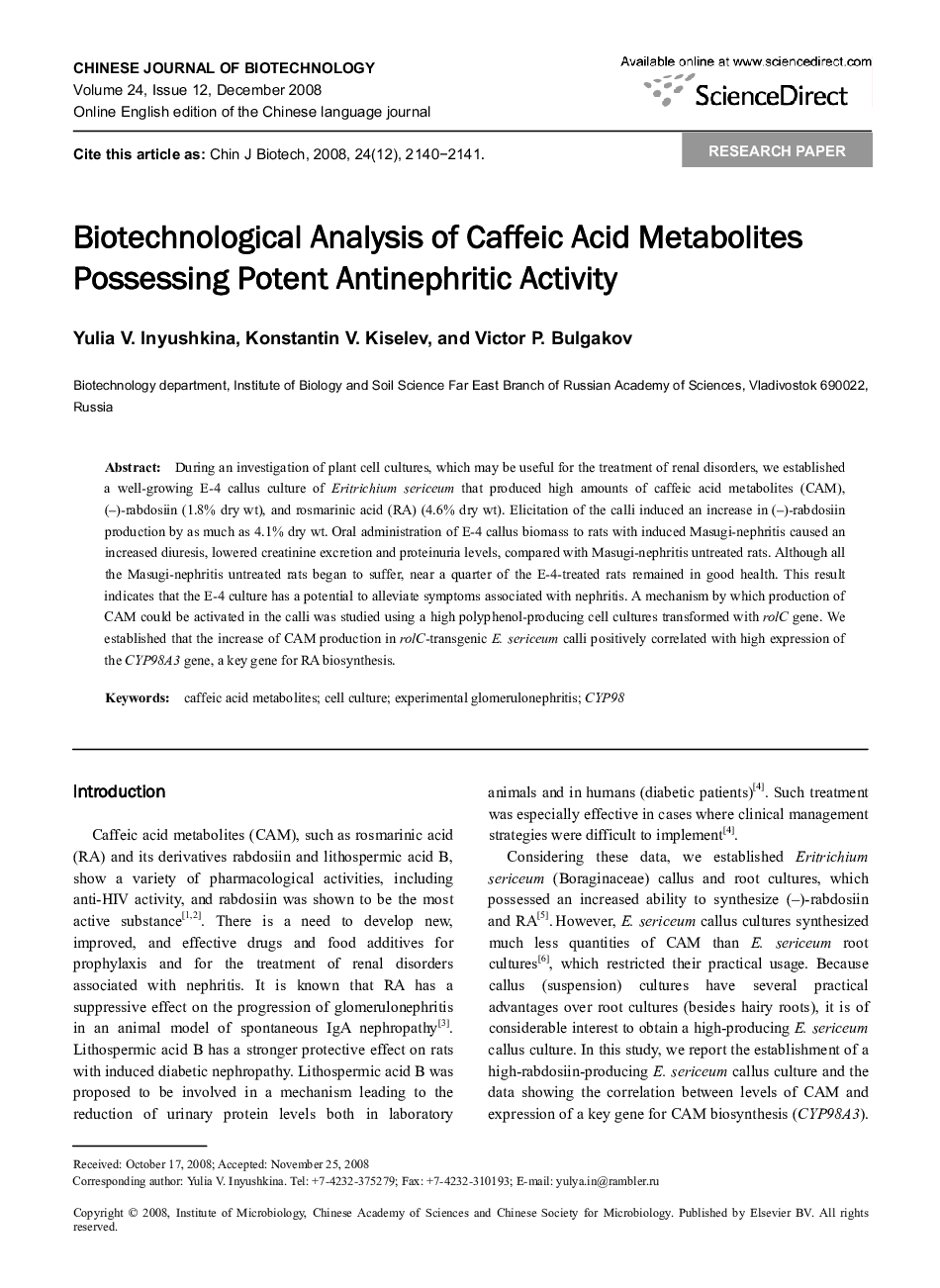| Article ID | Journal | Published Year | Pages | File Type |
|---|---|---|---|---|
| 2078818 | Chinese Journal of Biotechnology | 2008 | 5 Pages |
Abstract
During an investigation of plant cell cultures, which may be useful for the treatment of renal disorders, we established a well-growing E-4 callus culture of Eritrichium sericeum that produced high amounts of caffeic acid metabolites (CAM), (â)-rabdosiin (1.8% dry wt), and rosmarinic acid (RA) (4.6% dry wt). Elicitation of the calli induced an increase in (â)-rabdosiin production by as much as 4.1% dry wt. Oral administration of E-4 callus biomass to rats with induced Masugi-nephritis caused an increased diuresis, lowered creatinine excretion and proteinuria levels, compared with Masugi-nephritis untreated rats. Although all the Masugi-nephritis untreated rats began to suffer, near a quarter of the E-4-treated rats remained in good health. This result indicates that the E-4 culture has a potential to alleviate symptoms associated with nephritis. A mechanism by which production of CAM could be activated in the calli was studied using a high polyphenol-producing cell cultures transformed with rolC gene. We established that the increase of CAM production in rolC-transgenic E. sericeum calli positively correlated with high expression of the CYP98A3 gene, a key gene for RA biosynthesis.
Related Topics
Life Sciences
Biochemistry, Genetics and Molecular Biology
Biotechnology
Authors
Yulia V. Inyushkina, Konstantin V. Kiselev, Victor P. Bulgakov,
